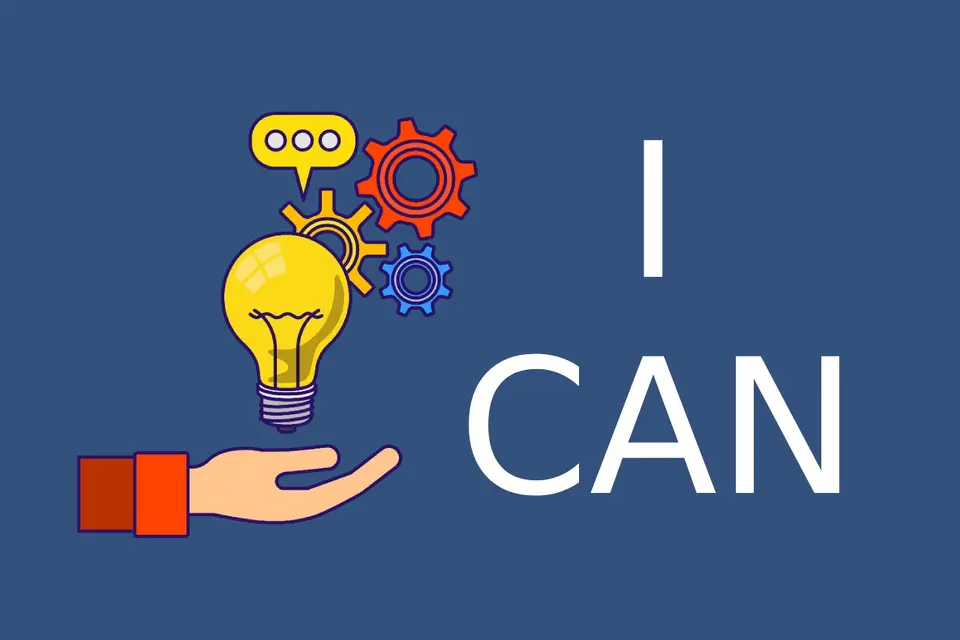Guide to the German Modal Verb "können" (can)

Modal verbs play a key role in German grammar, allowing speakers to express ability, possibility, necessity, permission, and more. One of the most commonly used modal verbs is "können", which translates to "can" or "to be able to" in English.
Meaning of "können"
"Können" primarily expresses:
Ability: "Ich kann schwimmen." – I can swim.
Possibility: "Es kann regnen." – It might rain.
Permission (less commonly): "Du kannst gehen." – You may go.
Conjugation of "können" in the Present Tense
Like all modal verbs, "können" is irregular. Here's how it's conjugated in the present tense:
Person | Conjugation | German Example | English Translation |
|---|---|---|---|
ich (I) | kann | Ich kann Deutsch sprechen. | I can speak German. |
du (you) | kannst | Du kannst gut tanzen. | You can dance well. |
er/sie/es (he/she/it) | kann | Er kann nicht kommen. | He can't come. |
wir (we) | können | Wir können morgen gehen. | We can go tomorrow. |
ihr (you all) | könnt | Ihr könnt hier sitzen. | You (all) can sit here. |
sie/Sie (they/you formal) | können | Sie können Englisch. | They/You (formal) can speak English. |
Sentence Structure with "können"
Modal verbs in German are used with an infinitive at the end of the sentence:
Example:
"Ich kann heute nicht kommen." (I can't come today.)
"Wir können das Auto reparieren." (We can repair the car.)
Past Tense (Präteritum) of "können"
In spoken German, the Präteritum (simple past) of modal verbs is common:
Person | Conjugation |
|---|---|
ich | konnte |
du | konntest |
er/sie/es | konnte |
wir | konnten |
ihr | konntet |
sie/Sie | konnten |
Example:
"Ich konnte nicht kommen." – I couldn't come.
📌Negation with "können"
Word order and placement of "nicht"
To make a sentence negative with "können", place “nicht” (not) after the conjugated modal verb and before any other verbs or sentence elements you want to negate.
Basic structure:
Subject + "können" (conjugated) + "nicht" + infinitive verb (at the end)
Examples
Ich kann nicht singen. (I can't sing.)
Wir können heute nicht kommen. (We can’t come today.)
Er kann das Problem nicht lösen. (He can’t solve the problem.)
Note: If you're negating specific parts of the sentence (like objects), "nicht" might appear elsewhere:
Ich kann den Film nicht sehen. (I can’t see the movie.)
❓ Forming Questions with "können"
In German, yes/no questions and W-questions (who, what, when, etc.) follow specific word orders when using modal verbs like "können".
Yes/No Questions
Structure:
Können (conjugated) + Subject + Other elements + Infinitive verb (at the end)
Examples
Kannst du tanzen? (Can you dance?)
Können wir anfangen? (Can we start?)
Könnt ihr morgen kommen? (Can you all come tomorrow?)
W-Questions with "können"
Structure:
W-question word + können (conjugated) + subject + other elements + infinitive verb (at the end)
Examples
Was kannst du machen? (What can you do?)
Wann können wir gehen? (When can we go?)
Warum kannst du nicht kommen? (Why can’t you come?)
Wie lange könnt ihr bleiben? (How long can you stay?)
📝 Tip: Unlike English, German doesn't use “do/does/did” in questions. The modal verb itself starts the question when needed.
🤔 "können" vs. "dürfen"
Don't confuse können (can) with dürfen (may/allowed to).
Verb | German Example | English Meaning |
|---|---|---|
können | Ich kann gehen. | I can go. (I am able to) |
dürfen | Ich darf gehen. | I may go. (I have permission to) |
"Können" is about ability or possibility, while "dürfen" is about permission.
Common Expressions with "können"
Was kann ich für dich tun? – What can I do for you?
Kann ich Ihnen helfen? – Can I help you?
Er kann nichts dafür. – He can’t help it / It’s not his fault.
Wie kann das sein? – How can that be?
"Können" is an essential modal verb in German that learners encounter early on. Mastering its forms and sentence structure will significantly improve your ability to express capability, possibility, and polite permission.
Sophia is a certified German language expert (Goethe & telc) with over eight years of experience helping learners master German. She specializes in creating high-quality digital learning materials and writing informative articles, while teaching German and preparing students for exams – bringing practical, real-world language skills to every lesson.